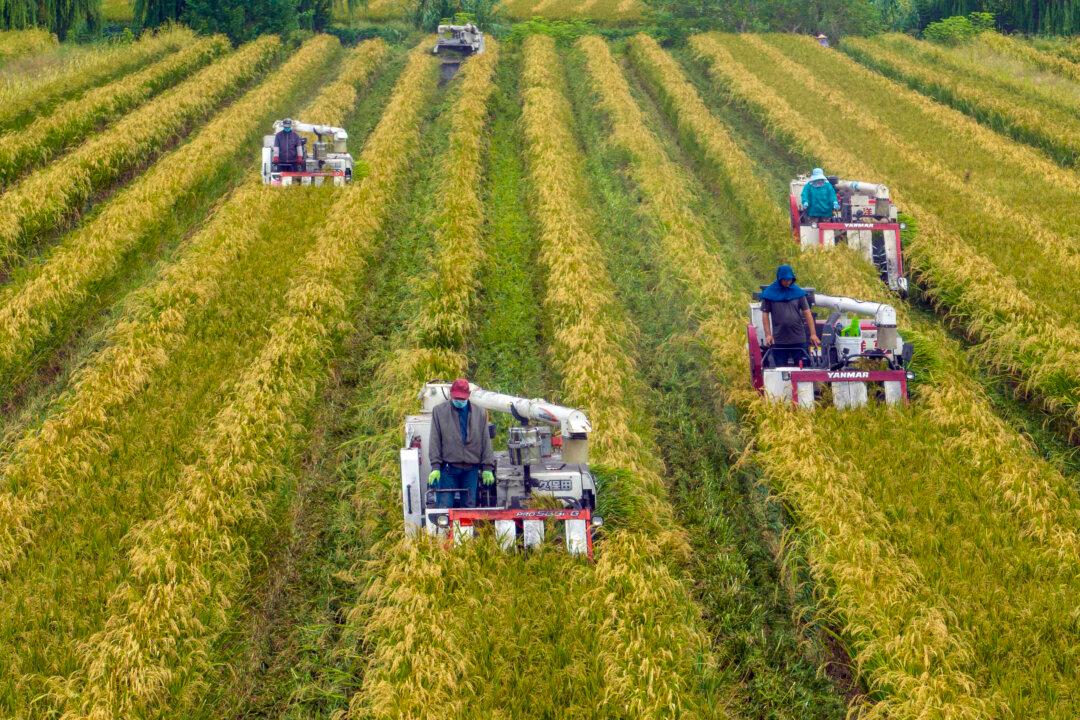
Farmers harvesting rice in a paddy during harvest season in Taizhou, in China's eastern Jiangsu Province, on Sept. 20, 2022. STR/AFP via Getty Images
Commentary
As I discussed in a prior post titled “
The Hollowing of China,” key macroeconomic factors in China are turning negative in a very transformative way.
